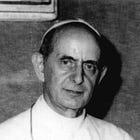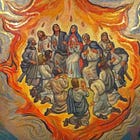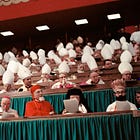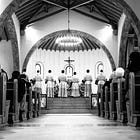Can we receive doubtfully valid sacraments?
It's often assumed that Pope Innocent XI's condemnation applies to receiving doubtful sacraments, as well as administering them. But is this true?

Introduction
Following Vatican II, Paul VI issued reforms of every single sacramental rite.1
For four of the seven sacraments, these reforms touched on their essentials.
Confirmation: change in the form, permission for use of new matter previously considered doubtful or invalid
Eucharist: change in the form
Holy Orders: change in the form
Extreme Unction: change in the form, permission for use of new matter previously considered doubtful or invalid.
Further changes to these essentials also appeared in the various vernacular translations (such as translating pro multis as for all in many modern languages for the consecration of the Chalice). In addition, the surrounding rites in which each of the sacraments are conferred have also suffered very extensive changes.
As a result of these changes, many Catholics have wondered whether these reformed rites of the sacraments are valid, invalid, or doubtful.
We have already provided a lot of material on this issue, and will continue to do so. However, this article will prescind from the particulars of these rites, and deal with more general questions:
What should be our attitude towards sacraments of doubtful validity?
Is it morally legitimate for us to receive doubtfully valid sacraments, and leave the rest to God?
Or, by contrast, are we morally obliged to avoid such doubtfully valid sacraments?
These questions show why the issue of the validity of the new sacramental rites is so important.
It is especially important for the question of holy orders; because if the new rites of ordination and consecration are invalid or doubtful, then such invalidity or doubt will necessarily overshadow the orders of those ordained or consecrated with them.
This same invalidity or doubt will also overshadow the sacraments which they administer.2 It will overshadow their ability to be consecrated to the episcopate (as this must be treated as depending on a prior valid ordination to the priesthood); and then to their ability then to confirm and ordain as a bishop.
This may be why Archbishop Marcel Lefebvre wrote in 1988:
All sacraments from the modernists bishops or priests are doubtfull now.3 [Sic.]
The established solution for doubtful sacraments which have already been received is conditional repetition.
But what is the proper course when we are faced here and now with the problem of invalid or doubtful sacraments, or with the prospect of this problem in the future?
What is the proper course when faced with doubtful sacraments?
In order to answer this question, we need to start with a basic axiom of moral theology related to conscience.
Outside of the specific norms for scrupulous persons, any action requires a morally certain4 judgment that the particular act is itself good, or permitted, or obligatory, etc. The Dominican moralists McHugh and Callan explain:
We must be sure we are right before we act; otherwise, we expose ourselves to the danger of sinning, and therefore commit sin (see 582). Hence, it is necessary to act with a certain conscience, and unlawful to act with an uncertain conscience. […]
Examples: Sempronia doubts whether it is sinful to sew on Sunday; she is not sure, but has grave suspicions that sewing is servile work; if she goes ahead, she will be guilty of violating the law, as being willing to take the risk, and therefore the responsibility.
Titus offers another a drink, being uncertain whether it has poison in it or not; he is guilty of sin, since he has no right to expose himself to sin and his neighbor to the danger of death.5
While one might hope or prefer the idea that one’s act is indeed good or lawful, acting on a doubtful conscience conveys a practical indifference to whether we are committing a good act or a sinful one. Such indifference towards the moral law is itself sinful. It remains sinful, even if we might have been wrong, and the act had actually been valid all along.
What is doubt? Fr Henri Grenier, the author of a series of textbooks on Thomistic philosophy, defines doubt as follows:
Doubt is a state of the mind in which the mind adheres to neither of two contradictory propositions on account of the fear of erring. In doubt there is no judgment, but rather the suspension of judgment.6
McHugh and Callan explain further:
A doubtful conscience may not be followed, if the doubt is such that one is not reasonably sure that a certain act is lawful.
Example: If a man does not know whether a certain remedy will be helpful or seriously harmful to another, his conscience is doubtful as to the lawfulness of administering the remedy, and it may not be followed. If in spite of this he makes use of the remedy, he is guilty of the harm he foresaw, even though it does not happen.7
These principles apply to the sacraments to a greater degree than many other actions, given the holiness of the sacraments.
When it comes to the new rites of holy orders, there are arguments for and against validity. The arguments against validity cannot credibly be dismissed as groundless or foolish: they are serious arguments which are at least probable (in a technical sense).
Once it is conceded that the arguments against validity are reasonable and probable, even if not conclusive, it follows that the validity of the new rites is not a moral certainty, and cannot be more than a probable opinion. Even if it might be the more probable opinion, it remains merely probable.8
Is it legitimate to act on a probable opinion? Is this different to acting with a doubtful conscience? If faced by multiple probable opinions, which should we take?
Tutiorism—when it is and is not obligatory to take the safer course
“Tutiorism” is the system of moral reasoning which holds that, when faced a range of probable opinions, we are always obliged to take “the safer course.”
While this is not the place to go into the various systems, the general application of tutiorism to all moral reasoning was condemned by the Holy Office in 1690:
Condemned Error: It is not licit to follow a [probable] opinion, even the most probable among the probable ones.9
However, it is an established principle of moral theology, which was further established by Pope Innocent XI’s condemnation of various propositions in 1679, that tutiorism does apply in relation to the validity of the sacraments, and that we are obliged to take the “tutiorist” or “safer course” in relation to validity:
Condemned Error: In conferring the sacraments, it is not illicit to follow the probable opinion with respect to the validity of the sacrament, disregarding what is more certain [relicta tutiore] , unless it is forbidden by law, convention, or the danger of incurring grave harm. For this reason, it is only in the conferral of baptism (and) priestly or episcopal ordination that the probable opinion is not to be held.10
“Relicta tutiore” is translated as “the safer [opinion] being abandoned” in an older English edition of Denzinger. In any case, the text itself is clear; and in this context, “safer” refers specifically to the validity, and avoiding the danger of exposing the sacraments to invalid administration (rather than the private good of individuals, for example).
We should also note that even the school condemned (which held that less safe opinions could be followed in relation to the sacraments, if they were probable) acknowledged that merely probable opinions were not to be followed in relation to baptism or holy orders.
McHugh and Callan explain what this condemnation means:
There are cases, however, when we are obliged (because some law requires it) to follow a safer course, that is, not to expose ourselves or others to some great harm. Thus, we must follow the safer side in the following cases: […]
(c) when there is question of the validity or invalidity of a Sacrament, for the virtue of religion requires that the Sacraments be administered with fidelity, and be not exposed to the peril of nullity. Example: It is not lawful to consecrate matter that has probably been substantially adulterated.11
The theologian Fr Felix Cappello SJ explains that acting in this way sins against religion, justice and charity. He states the thesis:
In the administration of the sacraments, it is not permissible to leave aside a safer opinion and follow an opinion that is only probable with regard to their validity. This is clear from the 1st proposition condemned by Innocent XI [cited above.]12
He then states that by exposing the sacraments to the danger of nullity, one sins against religion:
… on account of irreverence to Christ, who instituted the sacraments for this purpose: that, when the sacramental action is performed, the sacrament is truly confected and grace is caused.13
Cappello refers to the fact that administering the sacraments in a manner which is doubtfully or only probably valid is to act in a doubtful conscience, and thus falls under the general strictures discussed in relation to acting with a doubtful conscience. In effect, one is freely choosing a course of action which entails either administering a sacrament or merely simulating one—the latter of which is a sacrilege.
Viva well notes, just as he would sin gravely, who would confer a sacrament with the intention of invalidating it, he likewise sins who exposes it to the danger of being frustrated; for one offends against the law both by transgressing it directly, and by exposing oneself to the manifest danger of transgressing it.14
As mentioned above, while someone might prefer or hope to be administering a true sacrament under such circumstances, this course of action conveys a practical indifference to whether he posits an act of virtue or of sacrilege.
Cappello continues by stating that in this course of action, one sins against charity:
… because by thus confecting [the sacraments], one exposes the recipient to the danger of not obtaining the effect of the sacrament.
Further, that in such a course of action, one sins against justice—not just because of obligations arising from office, but also because…
[I]t is clear that every recipient by his own rights desires that the validity of sacraments conferred upon him be certain, as far as may be, and not merely probable.15
He concludes by emphasising the mortally sinful nature of such a course of action:
The minister who follows a probable opinion with regard to the validity of a sacrament, leaving aside a safer opinion, sins mortally, both because the danger of nullifying the sacrament is of its own nature a grave irreverence, and because charity and justice are indeed violated in a grave matter.16
For this reason, it seems illegitimate for a priest or minister to use the doubtful new rites of the sacraments.
For the same reason, it seems illegitimate for men doubtfully ordained with these new rites to administer the sacraments at all.17
This is because, in both cases, the legitimacy of such actions are based on merely probable opinions, whether about the validity of the new rites in general, or the orders of the minister in particular.
The “safer course”—which is obligatory in this situation—is for the sacraments to be administered exclusively in traditional rites, and for men ordained in the new rites to abstain from administering the sacraments until they have conditionally ordained by a bishop with certainly valid orders.
How does this apply to laymen receiving the sacraments?
Pope Innocent XI’s condemnation was expressed in relation to the administration of the sacraments. It is often merely assumed to apply also to those receiving the sacraments—usually without proof or argumentation.
However, this assumption appears to be correct. Cappello explains, with reference to the condemnation and to the intrinsic principles of doubtful consciences already discussed in this essay:
Not only in conferring, but also in receiving the sacraments it is illicit to follow a probable opinion concerning their validity, leaving aside a safer [opinion]. For although the proposition condemned by Innocent XI speaks expressly of only the one who confers, nevertheless it surely is the same for the recipient. The reason is that the recipient also, if he leaves aside the safer opinion, exposes the sacrament to the danger of nullity and thus commits an irreverence; further, if the sacrament be of necessity for salvation, he sins also against charity towards himself.
We affirm that this applies, where there is question of the validity of the sacrament in the strict sense, i.e. of matter and form, but not as regards the fruit of the sacrament.18
This does not just affect the laity: throughout the course of their lives, the clergy also receive the sacraments at the hands of other ministers (e.g., confession, extreme unction and perhaps consecration to the episcopate).
Cappello states that St Alphonsus presents the state of the question as there being two opinions, one of which holding that one can sometimes receive the sacraments based on a merely probable opinion of validity, leaving aside a safer opinion.
However, Cappello addresses this first by acknowledging the existence of a debate about whether Innocent XI’s condemnation “only refers to the minister directly and immediately,” and that its applicability to the reception of the sacraments is a point of controversy.
However, denying that the condemnation extends directly and immediately to the reception of the sacraments does not constitute a denial of the principle at hand. Cappello states that even those theologians who deny that Innocent XI’s condemnation extends to the reception of the sacraments are not discussing the applicability of the principle itself, but rather the extent of the condemnation.
Further, Cappello states that “St Alphonsus’ reading of the doctors is not correct,” and lists that his authorities, claiming that they were not addressing probable opinions in the context of validity “in the strict sense” (of matter and form), but rather in matters such as the way of receiving the sacrament, or the dispositions of the recipient of the sacrament. He explains:
Even those theologians who deny that the proposition condemned by Innocent XI has in view indirectly and mediately the reception of the sacraments also, do not therefore admit that in receiving the sacraments it is licit to follow a probable opinion, leaving aside a safer [opinion], when it concerns the validity of the sacraments in the strict sense, i.e. their essential and constitutive elements. Therefore, as it regards the use of a probable opinion that is less than safe respecting that which bears directly upon the validity of the sacraments, the opinion of theologians is not twofold, as some have wrongly said, but is one.
Indeed the disagreement among doctors is in reference to the use of a probable opinion in things that regard the way of receiving—that is, the required dispositions on the part of the recipient—or of his obligations. And on this point, by far the more common and true opinion affirms that it is licit to use a probable opinion that is less than safe.
Indeed those authors also who seem to think otherwise, do not really dissent about the principle of the licit use of a probable opinion—which is to be carefully noted – but only about the practical applications of this principle, e.g. whether the penitent may approach the confessor knowing himself to have attrition [imperfect contrition], or if at least the supposition of contrition is required. So it was held by the aforesaid few doctors. Today there is no controversy on this matter, for it is clearly demonstrated from the Council of Trent, Sess. XIV, c. 4, that attrition is sufficient to obtain the pardon of sins in the sacrament of Penance.19
As such, Cappello concludes that there is no debate about the principle: leaving aside the exceptions just discussed, he says that is “common and certain” that it is illicit to leave aside the safer opinion and to receive the sacraments following a merely probable opinion about validity in the strict sense—which is the sense under discussion.20
The Practical Course
Let’s repeat the practical conclusions established in this piece.
Once it is conceded that there are probable, prudent grounds for doubting the validity of at least the four sacraments which were changed in their essentials…
It is not legitimate to use these new rites, because their validity is at best a merely probable opinion. Instead, the safer opinion is to use the traditional rites, or nothing.
It is not legitimate to receive the sacraments administered with these new rites, for the same reasons. Instead, the safer opinion is to receive the sacraments in the traditional rites, or not at all.
This is leaving aside the fact that all the new rites are impermissible for Catholics, in that their “native character and spirit” express a doctrine and religion opposed to that of the Catholic Church.
Further, with regards to holy orders:
It is not legitimate for men ordained in the new rites to administer the sacraments, even in the traditional rites, because the validity of their orders is at best a merely probable opinion. Instead, the safer opinion is for them to seek conditional ordination from a certainly validly ordained bishop, and to abstain from administering the sacraments until that point.
It is not legitimate to receive the sacraments from men whose orders depend on the validity of the new rites, because these new rites and their orders are at best merely probable opinions. Instead, the safer opinion is to receive the sacraments only from those whose orders are certainly valid, or not at all.21
The neglect of conditional repetition of ordination/consecration under such circumstances would subject the faithful to “a notable loss,” because the sacraments are morally necessary for salvation, and:
Those who are aware of the principles at stake would be obliged to abstain from receiving the sacraments from such men, as we have seen in this essay; and depending on their circumstances, they and those for whom they are responsible may thereby be left in the unhappy state of having no access to the sacraments at all.
Those who are unaware of the principles at stake may also find themselves thereby deprived of valid sacraments and of sacramental grace given ex opere operato (from the work worked”) without even realising it; and in the absence of validly ordained priests and valid sacraments, they would unknowingly be relying on their own good dispositions and on the supply of graces ex opere operantis (“by the work of the doer”).
Both circumstances represent a serious loss to souls.
As already stated, the arguments against the new rites of holy orders are sufficiently serious and probable to establish a “prudent fear” (or positive doubt) about their validity. It certainly cannot be said that such fear of invalidity is groundless or foolish.
Having established these points, we can see the importance of McHugh and Callan’s explanation of when conditional repetition is unlawful, lawful and obligatory:
Repetition of a Sacrament on Account of Invalid Administration.
(a) This is unlawful when the fear of invalidity is groundless and foolish; for it is seriously disrespectful to a Sacrament and disedifying to others to repeat the rite without reason. But scrupulous persons are sometimes free of grave sin, since they mean well in repeating and are not accountable for their fears.
(b) This is lawful but not obligatory when there is a prudent misgiving about a useful Sacrament (Confirmation, Matrimony, anointing of one who is conscious); also when there is a slight reason of law or fact for fear about a necessary or more important Sacrament (Baptism, Orders, absolution of a dying person, anointing of an unconscious person, consecration of the Eucharist). For the Sacraments are for men. But if only a small loss or an unlikely loss will be caused by their non-repetition, the duty of repeating them cannot be insisted on.
(c) This is gravely obligatory when there is a prudent fear about a necessary or more important Sacrament; it is gravely or lightly obligatory (to be determined in each case) when there is a well-founded fear about a useful Sacrament, if charity, justice or religion calls for repetition and the inconvenience will not be too great. In Matrimony the alternate methods of convalidation or sanation may be used as the case demands. Again, the Sacraments are for men, and hence, if man will likely be subjected to a notable loss by the minister’s neglect of repetition, the duty of repetition is clear.22
There is no alternative: if we acknowledged no more than a “slight reason” for fear about the new rites of Holy Orders, then conditional repetition becomes lawful. Further, the loss caused to souls by their non-repetition would be very great, meaning that such repetition can be insisted upon (as per (b) above).
And in fact, as there is a “prudent fear” about the validity of these new rites of holy orders, such conditional repetition of ordination/consecration is “gravely obligatory” (as per (c) above).
Conclusions, objections and commentary on this practical course
No doubt these will seem like shocking conclusions for those hearing them for the first time.
Some will deny that abstaining from the sacraments conferred in the new rites is “the safer course,” and rightly point to the importance of receiving the sacraments for their own souls and for those of their dependents.
We should be very sympathetic to these concerns.
Nonetheless, this is not what is meant by “the safer course” in this context. “The safer course” does not refer to our private or social wellbeing, but to safeguarding the validity of the sacraments. Further, receiving possibly invalid sacraments is not a “safer course” for oneself or one’s family—especially if sacrilege is involved, through one’s awareness of the situation.
However, being deprived of the sacraments is a very great evil, which we should take great steps to avoid if possible, and to mitigate if impossible whilst seeking to restore this access.
Further, those who have putatively received holy orders in the new rites may be concerned about scandalising those whom they have absolved, communicated, anointed (or confirmed, ordained and consecrated, if they are bishops). They may be concerned about those who might mistakenly question the validity of their own baptisms and marriages, even though these sacraments do not depend on the validity of the ministers’ orders at all.
No doubt these concerns are serious as well. I do not hope to answer them here.
However, we can note in passing that such possible harm pales into insignificance compared to the actual harm caused by doubtful or invalid sacraments, as well as the false religion and reforms of Vatican II. The good achieved by professing the faith, rejecting error, and standing up for sacramental validity must vastly outweigh any possible scandal caused by this practical course; further, such possible scandal caused by doing what is right can surely be left in God’s hands.
Others, both laymen and clerics, may also be concerned about having to deny God’s work in themselves and amongst others, apparently through the new rites. But this practical course does not entail denying the validity of these sacraments, still less of grace. By definition, sacraments which are doubtfully valid are also possibly valid. It appears possible for someone to submit to conditional repetition of these sacraments, in good conscience, despite remaining personally unconvinced of the arguments. One can recognise the worth of arguments for an objective state of doubt, or for the necessities of the common good, without personally embracing the doubt or conclusion of invalidity oneself.
Finally, no-one is obliged to believe that what may be many graces, apparently attached to these new rites, were mere illusions. On the contrary, “The Church does not tell you to believe anything so absurd.”
This latter quote is taken from the article below, which addresses this very topic.
All this shows that, to preserve sacramental integrity, safeguard the common good, and secure peace of conscience, all traditionalist groups should systematically implement the conditional ordination/consecration of clerics when the validity of their orders depends on that of the Novus Ordo rites.
Addendum: Cases of Necessity
The principles discussed in this essay pertain a) to those sacraments which have been changed in their essentials, or which depend on the validity of the minister’s holy orders, and b) to ordinary cases.
Questions such as calling a doubtfully ordained priest to administer altered and doubtful sacraments (such as extreme unction) to a dying person are outside the scope of this article. Whether this is justified, and whether making a confession and receiving viaticum from such men is justified is outside the scope of this article.
I do not wish to take a position on these questions—but at least making a confession to such men may seem to be justified in extreme situations.
For what it is worth, having discussed the issues with “chrism” which is not made from olive oil, Fr Matthias Gaudron FSSPX nonetheless states:
91. Should one receive the sacraments in the new rites?
Because of the defects presented above, one should not receive the sacraments in the new rites, but only in the traditional rites, which alone are worthy and certainly valid. Receiving the sacraments under a form that is even slightly doubtful is not allowed. An exception should be made, however, for the last rites, when in case of emergency it is impossible to summon in time a priest faithful to Tradition.23
Further, for the sake of full disclosure, let us see what Cappello says the following about cases of such necessity:
In necessity, or when one must confer or receive a sacrament, and the safer opinion cannot be followed, it is proper to follow a probable [opinion], because, as the Angelic [Doctor] says, “it is not required that every measure be entirely infallible and certain, but according to what is possible by the nature of the case...; necessity knows no law.” Thus if a dying infant is to be baptized, and you have none except doubtful matter, e.g. snow that has not yet melted or rose water, you can and should baptize with it.
In such a case a safer opinion is not set aside, but rather is not to be had; and because of the necessity there is no irreverence, although the sacrament, which was instituted for men, is exposed to the danger of nullity.24
END
HELP KEEP THE WM REVIEW ONLINE!
As we expand The WM Review we would like to keep providing free articles for everyone.
Our work takes a lot of time and effort to produce. If you have benefitted from it please do consider supporting us financially.
A subscription from you helps ensure that we can keep writing and sharing free material for all. Plus, you will get access to our exclusive members-only material.
(We make our members-only material freely available to clergy, priests and seminarians upon request. Please subscribe and reply to the email if this applies to you.)
Subscribe now to make sure you always receive our material. Thank you!
Read Next:
Follow on Twitter, YouTube and Telegram:
Order: Apostolic Constitution Pontificalis Romani of 18 June 1968; AAS 1968 pp. 369-373.
Eucharist: Apostolic Constitution Missale Romanum of 3 April 1969; AAS 1969 pp. 217-222.
Marriage: Decree of 19 March 1969; Notitiæ (bulletin of the Congregation for Divine Worship) 1969 pp. 203.
Baptism: Decree of 15 May 1969; AAS 1969 p. 548. 548.
Confirmation: Apostolic Constitution Divinæ consortium naturæ of 15 August 1971; AAS 1971 pp. 657-664.
Extreme Unction: Apostolic Constitution Sacram Unctionem infirmorum of 30 November 1972; AAS 1973 pp. 5-9.
Penance: Decree of 2 December 1973; AAS 1974 pp. 172-173
It is important to note that anyone can baptise validly; and that spouses may marry each other validly even in the absence of a priestly witness, when such is not available. All other things being equal, there is no reason to suggest that baptisms or marriages would be invalid or doubtful if the priest involved had not been validly ordained.
Regarding the elevation of a non-priest to the episcopate, John Daly provides the following translation from the Dictionnaire de Théologie Catholique:
It must be recognized that the almost unanimous response of modern theologians is affirmative: ‘All authors consider the Consecration of a bishop to be invalid unless it is preceded by the priesthood.’ [Emphases added, and the article goes on to quote various authorities for this assertion, including St. Alphonsus Liguori, Book 6, n. 793 of his Theologia Moralis].
In any case, the point of this essay is to explain the idea that the safer course must be taken in relation to the validity of the sacraments: but while the validity of per saltum consecration to the episcopate may be a probable opinion, it is the less safe opinion; ergo, etc.
John Daly, Michael Davies—An Evaluation, Tradibooks, p 339
Letter dated 28 October 1988. The handwritten letter and transcription have been made available by the Dominicans of Avrillé here.
“Moral certitude, therefore, is sufficient for the conclusions drawn by conscience.”
John A. McHugh OP & Charles J. Callan OP, Moral Theology—A Complete Course Based on St. Thomas Aquinas and the Best Modern Authorities. Vol. I, n. 644 (c). B. Herder, London, 1958.
Ibid. n. 641
Grenier, Scholastic Philosophy, n. 585
McHugh and Callan, n. 585 (b)
For the sake of argument, we can also concede that the invalidity and doubtfulness of these new rites are also merely probable opinions.
Decree of the Holy Office, December 7 1690. In Henrici Denzinger, Compendium of Creeds, Definitions, and Declarations on Matters of Faith and Morals (DH), n. 2303. Ed. Peter Hünermann, with Fastiggi and Nash, 43rd ed., Ignatius Press, San Francisco, 2010.
Sixty-Five Propositions Condemned in the Decree of the Holy Office, March 2, 1679. DH n. 2100.
McHugh and Callan, n. 678
Felix Cappello, De Sacramentis, De Sacramentis, vol. 1, n. 25. Translated from Latin by Eric Hoyle, iIn Eric Hoyle, Priestly Ministry after the Vatican II Revolution: Confessional Jurisdiction – Long Version. Version 2.0, 6 Marhc 2022, pp 173-8.
Ibid.
Ibid.
Ibid.
Ibid.
This refers at least to those which depend on the priestly character for validity.
Ibid. n. 26. He then explains, as an example, that one is permitted to act on a “solid probability” that one is in a state of grace before receiving Holy Communion.
Ibid. n. 27.
To clarify, Cappello adds:
It is universally permitted, both in conferring and in receiving the sacraments, to follow a morally certain opinion (which is most probable), although perhaps the opposing opinion may be safer. The reason is, that as the opinion is not merely probable, but morally certain, it is entirely safe; for in matters pertaining to eternal salvation, God does not oblige men to use means that are metaphysically certain, but only morally certain; otherwise the way of salvation would not be merely narrow, but practically impassable. (n. 28)
He also notes three general cases in which one can follow a merely probable opinion, leaving aside a safer opinion:
In case of necessity (e.g., a dying infant can be baptised with doubtful matter if there is nothing else—or, “notwithstanding that it concerns the validity of the sacraments, and there is no absolute necessity nor does the Church supply, when otherwise the administration or reception of the sacraments would be liable to excessive scruples or difficulties.”).
When the Church supplies the defect
When it only pertains to the way of administering a sacrament, rather than the validity itself.
See the Addendum to this article for more.
This gives rise to the difficult situation in which groups dominated by men who have unquestionably valid orders occasionally work with a small number of men ordained in the Novus Ordo rites. Here, we need to take account of a number of different factors.
For example, if an order like this occasionally works with “Novus Ordo priests” in one part of the country (or in another country), it would likely be a negative doubt to wonder about the hosts reserved in a tabernacle in another area. Without some positive reason, it seems unnecessary to engage in negative doubts about whether such “Novus Priests” had been in the vicinity recently, and that one of them had replenished the hosts for the tabernacle.
It also does not seem reasonable to think that, without positive reason, the average Catholic is obliged to worry about whether the hosts were consecrated by a “Novus Priest” who may or may not have been present in the Church in the preceding days.
For similar reasons, it does not seem reasonable to me to think that the average Catholic is obliged to worry about the history and lineage of a given celebrant, or to be making enquiries into this when abroad, and so on.
However, as such a group’s cooperation with “Novus Priests” continues or grows, such a presumption will evidently become less and less plausible.
McHugh and Callan, n. 2682.
Fr Matthias Gaudron, The Catechism of the Crisis in the Church.
Cappello, n. 30-2. In this passage, Cappello continues:
One may act on a probable opinion, notwithstanding that it concerns the validity of the sacraments, and there is no absolute necessity nor does the Church supply, when otherwise the administration or reception of the sacraments would be liable to excessive scruples or difficulties.
The reason is, that Christ, who certainly instituted the sacraments for men, did not wish that their administration or reception be morally impossible; as indeed it would be if their administration or reception were liable to excessive doubts or difficulties. Therefore if there is no other way of avoiding such a [difficult] mode of administration or reception, unless one acts according to an opinion that is only probable, it is licit to act according to it. This has its place especially in regard to the sacrament of Penance.
In this case there is not really any exception, as some doctors wrongly insinuate, but only a practical application of the general principles enunciated above, i.e. that it is licit, in case of necessity, to follow a probable opinion that is less than safe. For although in the aforesaid case there is no absolute necessity, still there is relative necessity, which is indeed real and grave, which is a just and sufficient reason for following a probable opinion, leaving aside a safer.
Following this text, he adds a further exception:
When the Church supplies the defect. – The reason is, that there is then practical certainty of the validity of the sacrament, by the very fact that the Church supplies; and therefore although speculatively the opinion may be only probable, practically it turns out to be most safe, as being certain. This especially affects the sacraments of Penance and Matrimony, i.e. those sacraments whose validity depends on ecclesiastical power either ordinary or delegated.










It was precisely because Fr. Settimo (a conciliar refugee never conditionally ordained) was recently assigned to our former SSPX chapel, that we quietly made our departure in early August, and now attend the local SSPV chapel. The theoretical question then arises: "When Fr. Settimo is eventually transferred out of the chapel, and a certainly ordained priest replaces him, will you return?" Against this, I would observe the increasing numbers of conciliar priests circulating in various US SSPX venues (more than a dozen at last count), traveling among the various chapels, visiting, leaving hosts form their private masses in the various tabernacles, etc. I would have to say that this is a huge dissuasion.
"The arguments against validity cannot credibly be dismissed as groundless or foolish: they are serious arguments which are at least probable (in a technical sense)." Those Bishops who produced the 'Ottaviani Intervention' questioning the new rite of 'Mass', did not doubt the validity of the rite of ordination. Are we then to suppose that Ottaviani et al. were dumb or complicit? Neither.